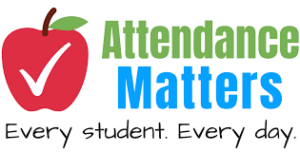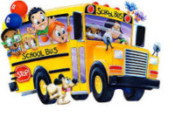Lackner Woods Code of Conduct
To meet the goal of creating a safe, caring and inclusive school environment, the WRDSB and Lackner Woods P.S. support the use of proactive, positive practices including education and consequences for inappropriate behaviour, and including progressive discipline, which includes suspension and expulsion where necessary.
The purpose of this guide is to provide students, parents, and staff with a plan to help our children develop self-discipline. Self-discipline is the control necessary to function as a contributing member of society and is acquired through a learning process. It grows from an understanding of reasonable expectations and an acceptance of legitimate consequences when those expectations are not met.
At Lackner Woods Students Are Expected to:
- abide by the Lackner Woods Character Attributes: courteous, fair and kind
- be courteous, fair and kind to one another, staff and volunteers
- come to school every day
- be on time and prepared to learn
- speak respectfully (no inappropriate language, putdowns, swearing, threats, teasing, spreading rumours, etc.)
- act in a way that is safe (e.g., on structures, in gym class, on the school bus, etc.)
- keep hands and feet to themselves (no fighting, play fighting, or inappropriate contact)
- respect the learning environment of all students
- consider the effects of their actions on others
- learn to solve problems through positive, productive methods (e.g. talking through a problem)
- ask teachers for help and advice if needed when solving a problem
- show respect for the rights and property of others (e.g., no vandalism)
- follow the WRDSB and School Responsible Use Procedure
- use personal mobile devices only as follows:
- for instructional purposes (as directed by an educator);
- for health and medical purposes, and/or;
- to support special education needs.
Educational Consequences:
Lackner Woods staff expect children to LEARN from poor choices in behaviour/attitude. Therefore, educational consequences are very important. The goals for educational consequences are teaching the children:
- to take ownership and responsibility for their behaviour
- the process of positive problem-solving
- that privileges are deserved and not a right
- to respect themselves, peers, and adults
Consequences of Positive Behaviour Choices for Students:
- increased engagement and academic achievement
- increased positive recognition by parents, peers, and staff
- positive relationships/friendships with others
- increased positive feeling of self-worth/inclusion
- increased social skills
- increased levels of independence/trust
Strategies Used To Reach These Goals:
- classroom meetings
- student-teacher conferences to clarify expectations, help the student understand the problem and take responsibility for his/her actions
- student-student resolutions
- parent-teacher conferences
- “time-out” from situation
- referral to the Principal
- meaningful assignments/apologies/restitution related to the poor choice of behaviour/attitude
- withdrawal of privileges
- withdrawal from class / from school
- formal suspension from school
- recommendation for expulsion by WRDSB
- report to police or other community agencies
- exclusion from school until intervening conditions are appropriately addressed
All strategies are used to reinforce the fact that inappropriate behaviour is disrespectful and disruptive to student learning, safety, and to a positive school environment.
Statement of Non-Tolerance: The following behaviours will not be tolerated, either on school property, on provided transportation, or in school-sponsored or related activities:
- any physical assault or threat of assault
- any sexual, religious, ethnocultural and/or racial abuse, or harassment
- the use, possession or sale of alcohol, cigarettes or illicit drugs
- possession or use of weapons
- any gang/youth group displaying a pattern of delinquent or disruptive behaviour
Bullying Will Not Be Tolerated

 Hot Lunches
Hot Lunches Student Transportation Services of Waterloo Region
Student Transportation Services of Waterloo Region